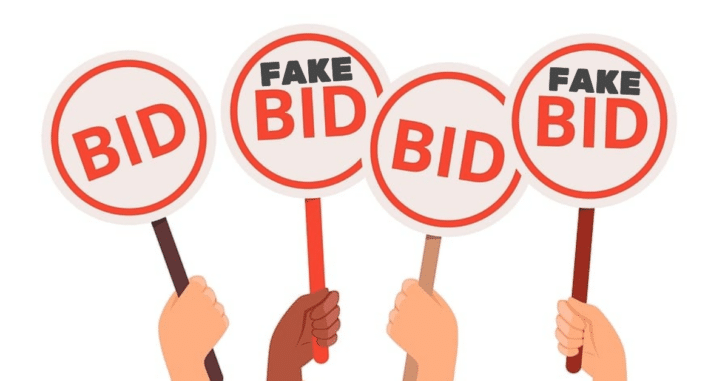Namecheap is making progress, but the industry has a long way to go.

Last month, I wrote a post about domain name auction gaming. It started with, “Bidders are right to be upset, but solutions can be controversial, too.”
Indeed, when Namecheap announced new measures this week to increase transparency, some people thought it went too far.
Namecheap now identifies buyers by spending level, grouping them into bronze, silver, gold and platinum levels. And it’s going to show when that bidder joined the marketplace.
That’s not controversial. But some people are concerned about Namecheap showing exactly how many auctions they’ve won.
In my book, it’s better to do a bit too much and dial it back than to do too little.
Consider what’s going on at GoDaddy. In a post on NamePros today, NameBio’s Michael Sumner pointed out recent sales where two bidders escalated prices quickly, only for the top bidder to back out. For example:
- 9246.com went from $20,250 to $1,025
- e-Skills.com went from $19,250 to $22
- YaPay.com went from $34,000 to $3,906
- B66.com went from $54,000 to $20,050
When the high bidder doesn’t pay, the runner-up gets the domain at the price they would have paid had the other bidder not participated.
That might seem fair on the surface, but it is allowing people to game the system. They create two accounts, escalate prices quickly to knock out other bidders, and then get the domain at the price they started the game at.
After domain investor Hiren Patel referred to this on Twitter, GoDaddy replied that it is stepping up manual processes to fight this and is working on “enhanced verification methods” for the future.
In the short term, marketplaces have a disincentive to cut down on shilling and bad behavior. It cuts into their profits. But in the long wrong, people will stop bidding as much if they think they’re getting screwed.
That’s why Sav.com took drastic measures in auctions on its site. People lost trust, so the company stepped in to wipe out bad behavior. It started pre-authing credit cards for each bid. This eliminated almost all gaming.
Kudos to Namecheap and Sav for stepping in to fix these issues. It gives me more trust when I bid on these platforms.






Godaddy could definitely use more transparency in their domain auctions.
Stop Huge Domains from bidding would be a good start.
That’s not transparency 🙂
Knowing that you’re not always going to be outbid by Huge Domains bot is better transparency IMO.
That’s just competition. Granted, it would help if everyone had access to the full auction API so they could bid the same way.
That’s not competition, that’s abuse of an aftermarket platform and Godaddy let’s it happen daily!
There is a lot to do well in domain auctions and there has been no interest in doing it better for years.
I won’t waste my time on Namecheap if I’m Gold $15,000+ against
Platinum $100,000+ there is a difference of $85,000 the Platinum bidder has a very high advantage.
I like what Sav has done. Any serious bidder would have no problem doing pre-auth on a credit card for an auction. And wow…. “This eliminated almost all gaming.” Do ya think all the other auctioneers don’t know that? I have no doubt that the gaming of these auctions comes from within – either directly by the corporations themselves (through friends/associates/related companies/etc), and/or from employees inside who can profit from it as well. There is no logical reason why they can’t all do the same thing to eliminate gaming.